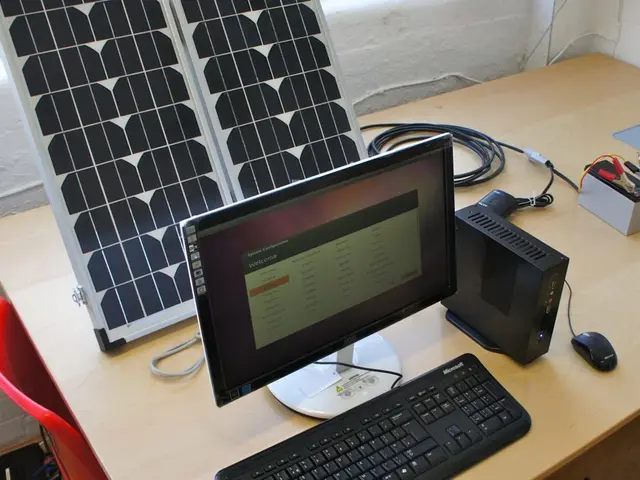Opposition to Solar Energy Reductions by SPD
In a recent development, the proposal by Federal Economics Minister Katherina Reiche (CDU) to phase out state funding for new solar installations has sparked controversy. This move, if implemented, could potentially impact the future of small-scale solar PV projects in Germany.
The proposal has faced opposition from various quarters, including Nina Scheer, energy policy spokeswoman for the SPD parliamentary group. Scheer argues that the proposal goes against the coalition agreement, which does not support the partial dismantling of solar energy funding.
Reiche's proposal has also met with opposition from the coalition partner. Scheer advocates for further measures to advance network integration, network connections, and cross-sectoral use of renewable energies. She emphasizes the need for more flexibility, storage, efficient network utilization, and a significant expansion of today's curtailment, i.e., wasted power. These measures, according to Scheer, are included in the coalition agreement.
The Economic Minister, however, does not intend to change the feed-in tariff for existing solar installations, citing existing protection. Reiche also points out that prices for solar systems and storage have significantly dropped, making new, small PV systems already profitable in the market and not requiring funding.
The proposal has been met with criticism from industry associations, who warn that phasing out support could undermine investor trust, reduce financing for new projects, and lead to layoffs of recently trained skilled workers vital to Germany’s energy transition. They argue that this uncertainty is detrimental to the broader goal of transitioning to renewable energy and achieving climate targets.
The dispute within the black-red coalition centers on whether to continue, reduce, or phase out subsidies for small-scale solar PV projects. Proposed solutions or pathways being considered within the coalition and related stakeholders include reassessing state aid and auction mechanisms to better support renewable investments while ensuring market stability, emphasizing a strategic approach to transition technologies, and possibly maintaining or reforming subsidies to small solar projects to avoid undermining jobs in the solar sector.
The core dispute revolves around the tension between fiscal/practical constraints on funding small solar initiatives versus the economic and climate benefits of sustained support. The goal is to carefully balance investor certainty, job security, and energy transition goals within the coalition.
[Photo Gallery: Solar Energy Debate] A photo gallery is currently open, showcasing various aspects of the solar energy debate in Germany. From solar installations to protests and discussions within the coalition, the gallery provides a visual representation of the ongoing controversy.
Read also:
- More than half of British homes adhere to insulation standards established during the 1970s.
- Renewable Energy Capacity Surges to an All-Time High of 4,448 Gigawatts in 2024, Yet More Rapid Increases are Necessary to Achieve 2030 Goals – Report by IRENA
- Altering Earth's Magnetic Field: Examining the Effects on Planetary Climate Through Shifts in Polarity
- Navigating the Coal Phaseout: Strategies and Solutions








